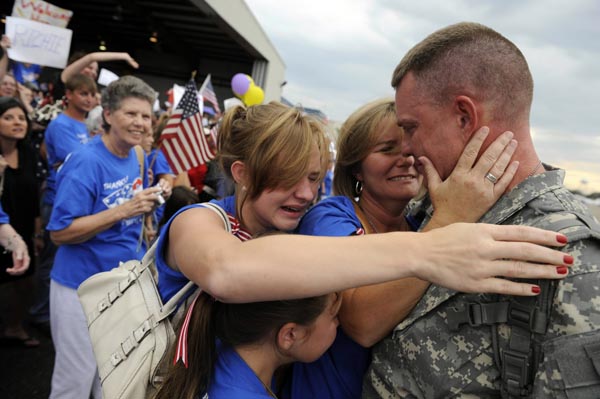On the way out the door to the airport yesterday, I pulled a few books off my shelf that I thought might be useful reading in the days to come. One I grabbed was a thin but rich book by the Orthodox Christian philosopher Jean-Claude Larchet, called “The Theology of Illness.” I read it last summer as part of my Templeton research, and blogged on it here. In the book, Larchet examines illness from a patristic perspective. Drawing on the teaching of the Church fathers, Larchet writes that one has to strive to be “philosophical” about one’s illness, neither succumbing to fatalism and depression nor living with the kind of blind optimism that amounts to denial. To become philosophical about one’s illness is to stand apart from it and to see the challenge of suffering as an opportunity for purification of our hearts and souls. To put it another way, illness is an invitation to grow closer to God, and to our loved ones, and to think about how the law of love works itself out in the mystery of human suffering.
I don’t think you have to be a Christian to see the wisdom in this. None of us can escape suffering and death. Indeed, who was the classical philosopher who said that all of life is learning how to die well? Larchet quotes St. Gregory of Nazianzus saying, “Do not admire every form of health, and do not condemn every form of illness.” His point is that the value of health and sickness are relative to how we make spiritual use of them. Larchet writes of a very sick AIDS patient who told him that if not for his fatal disease, he wouldn’t have gotten serious about his life, and come to know God. Last summer, I read a book by an Orthodox priest-theologian who recounted six months spent counseling an unhappy woman with inoperable cancer. A day or two before she died, her body emaciated, she told the priest that she thanked God for her cancer, because it took her out of her everyday lostness, and forced her to be reconciled to some truths she had long run away from. The point here is not to call cancer good, but rather to say that suffering, from a Christian perspective, always offers a chance that its pain and darkness might be redeemed by our reaction to it.
I mentioned last night how the response of Ruthie’s friends to this crisis has been a kind of theophany, showing how magnificently they love, and return the love she and Mike have given them over the years. For me, seeing Ruthie’s courage last night when I visited her in the hospital, her refusing self-pity and her stoic belief that there’s no point in blaming anybody or raging about this, because it interferes with getting on with the business of healing, was a tremendous inspiration. I do not believe I’m being a sentimentalist to say that the way my sister is dealing now with this crisis, and will deal with it, will amaze and build up everyone who sees her through it.
Five minutes ago, I welcomed my parents’ neighbor in the back door. He stopped in to check on everybody, and to offer his help. Believe me, it’s phenomenal how people are stepping up to hold Ruthie and her family up. This is what real community is. It also highlights for me a passage from Larchet in which he talks about how we moderns, despite having so many more medical and scientific resources with which to combat illness, find ourselves with a lack of other resources, which our ancestors had. Among the factors making it more difficult for us to face critical illness today:
1. An over-valuation of biological life — that is, the idea that preserving biological life is the utmost value, and a concomitant fear that biological death means the absolute end of human existence. This can cause us to face our illness with great fear, which only undermines our ability to resist it.
2. Psychological health conceived as an enjoyment of well-being in the body. This has to do with a fundamental refusal to conceive of suffering as having any redemptive or positive effect, and with the suppression of pain and elimination of suffering — as opposed to transforming pain and suffering — as the highest value of civilization.
3. The fear of everything that can reduce or eliminate enjoyment of well-being in the body.
I have not had the opportunity to talk about any of this with my sister; I only got to spend 15 minutes with her last night, and she was tired, so I didn’t stay long. But knowing Ruthie as I do, and seeing the fear in her eyes, but beyond that the tranquility, gave me comfort that she has the spiritual wherewithal to face what’s coming. And because she does, I think she’ll give courage to those around her who have the ability to receive it. Moreover, Ruthie and her family — this family of mine — do not face suffering alone. We are all part of this community. I’ve not been here but 12 hours, and I’m facing the very real possibility that my sister is going to die, and die soon, but the only thing so far that really broke me down emotionally is thinking about the overwhelming love the friends of this family have already shown to them, and no doubt will continue to show. Cancer, God knows, is not to be wished for, for the sake of making manifest this love that always was there. But outlaw cancer did not ask our permission to intervene in our lives. Come what may with Ruthie’s body, we are all going to see and to live through the triumph of the law of unlimited love. It’s already started. This is what hope is built on, and hope is not the same thing as optimism.

